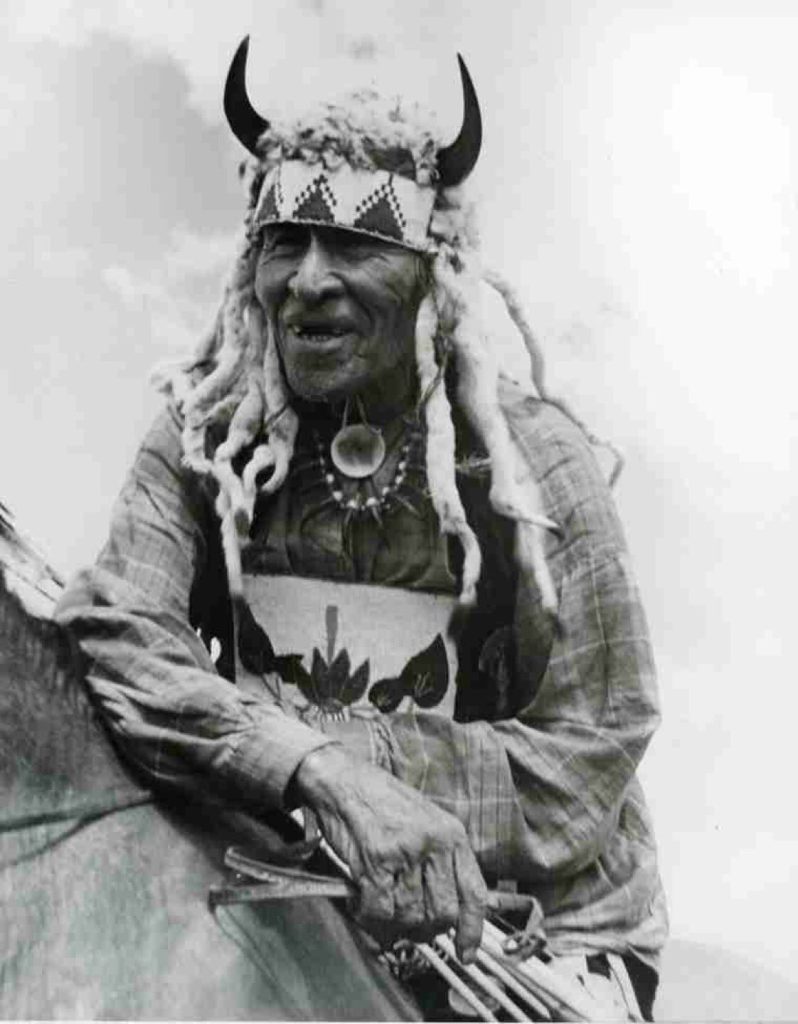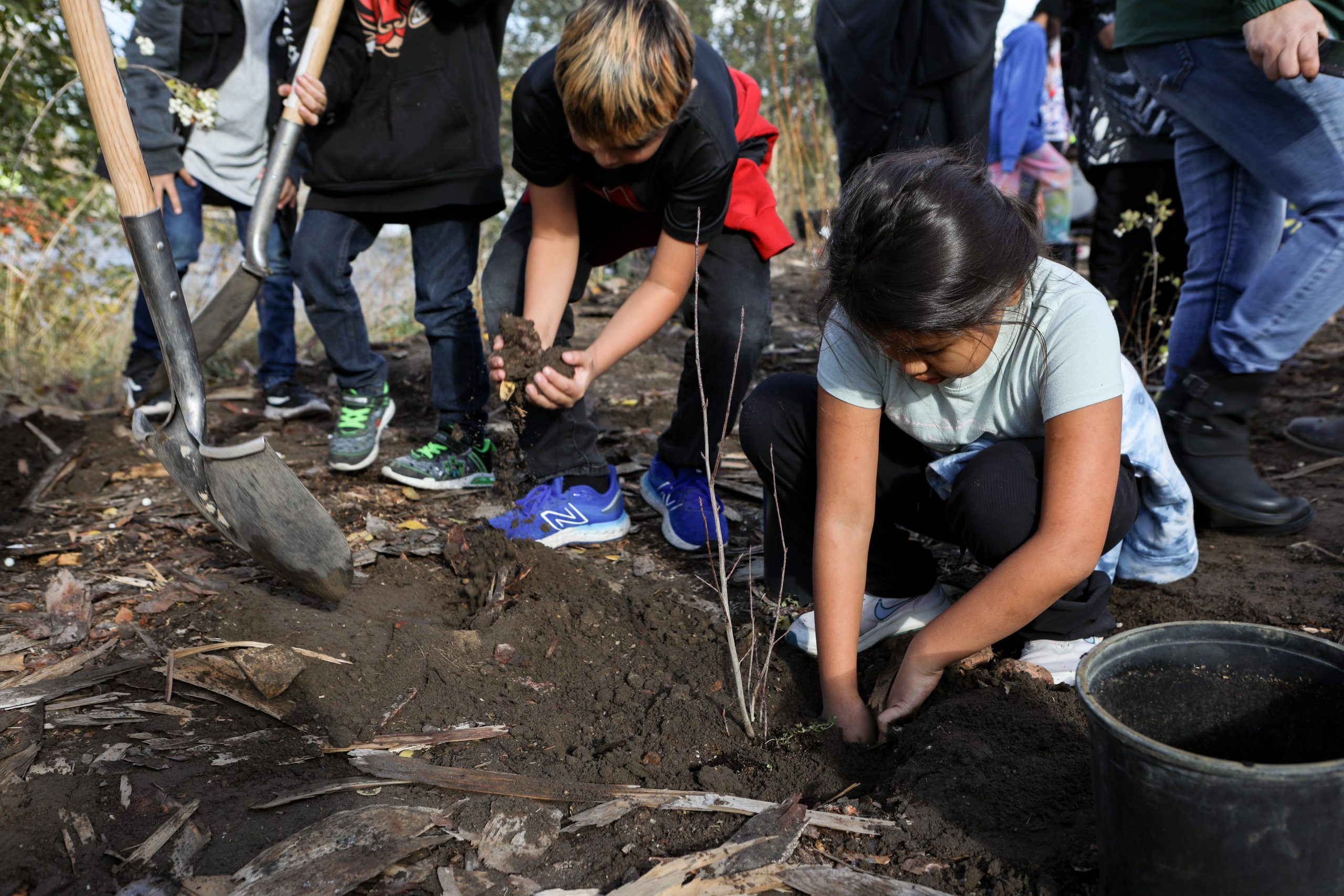Piecing my culture together, one moment at a time
To all of my kin who are feeling disconnected — I want you to know that your culture is waiting for you to reclaim it


The memories are sprinkled throughout my life. I pieced my cultural teachings together with these little scraps — brief interactions, the occasional story, a teaching here or there.
In one memory, I’m a young adult and I’m sitting with my cousins in a little hand-built cabin on the rez. Our grandparents are nearby in the main house, but we’re in the little outbuilding with no power, built by my dad. I’m listening to my cousins talk about our relative, Fine Day — the namesake of all the Finedays in our family.
One of my cousins knows many stories. He speaks of raids from long ago, carried out by Fine Day. He knows the tales intimately: the number of times Fine Day managed to steal horses from an enemy camp, the number of horses he took in each raid, the times he counted coup (meaning he was able to touch the enemy without them knowing it or take the horses without them even realizing it until the next day).
When I was younger, I was hungry for these types of stories. I was raised on the West Coast, away from my family on the prairies, so I didn’t grow up hearing about my ancestors. I’ve never heard anyone in my family spoken of the way my cousin spoke of Fine Day that night. He was boastful, obviously proud of our shared ancestor. The stories were a revelation to me.
This night also left me with questions. The biggest among them, what happened to us? Why was my family now isolated on a reserve instead of living among hundreds in community? Why was I not taught these stories in school, rather than in a building without power, as we passed around a bottle of booze around by candlelight? What transpired between the time when Fine Day was a celebrated warrior and now, when only my family remembered him? Why were we so poor, when we used to be so wealthy? Before that night, I had no idea these stories even existed. Were they being preserved?
Another memory: I’m standing in a field on the rez with my dad, the green sweetgrass waving all around us in the wind. It’s the first time I’ve seen him in over a decade, and I am an awkward fourteen-year old. “This is where you were born,” he tells me. I am in awe. The day is hot. The colours around me look over-saturated as I squint in the bright sunlight. Am I dreaming? This is like a dream come true, and I can hardly believe it.
My father takes some tobacco into his hand and shows it to me. Then he places it at the root of one of the sweetgrass plants, explaining, “We always give our thanks and ask permission before picking anything.”
I watch and nod. This teaching makes sense to me. It’s respectful, and it acknowledges the gift of the plant. I am soaking up this knowledge like a sponge. After a lifetime of being taught rules that make no sense to me, here I am learning something that seems obvious and feels right. Things begin to shift inside me.
“We never pick all the plants in a given area,” he continues. “We always leave some plants so that they can regrow. And we never pick all of one plant. We leave some behind, so the bush or tree can regenerate itself.”
This knowledge, my culture, is something I’ve been yearning for my whole life. Hearing it is like feeling pieces of my spirit return to me from the far reaches of the universe. I am becoming whole again.
It’s disorienting to know you’re from a place that you have no knowledge of. I knew I was from Sweetgrass First Nation, that I was from so-called Saskatchewan, that I was Cree. But I knew nothing of my culture. I was raised in East Van. So this knowledge was just a theoretical understanding. I didn’t really know what it was to be Cree. In that sense, I was no different from all the non-Indigenous people around me.
There’s a special kind of shame that accompanies that experience.

I spent my childhood understanding that something had been taken away from me. Now, here in this field on my reserve, some of it was being given back to me and I was so grateful.
Another memory: I am fifteen, playing softball at my high school in the West End of “Vancouver.” I’m not a strong batter, but I am a pretty good outfielder. We are playing a game and I’m in the outfield near the back fence of the school. A trio of dark-skinned Indigenous people, pushing a shopping cart filled with different types of alcohol, approach the fence and stop to watch our game for a while.
I’ve heard classmates refer to these types of people as “rubbies.” They are wearing dirty clothes, their hair dishevelled. To me, they look like they could be relatives. I turn to look at them and offer a shy smile before I turn back to focus on the game. By this point in my life I am already aware of the residential “school” experience that my father endured. I have seen the way it has played out in my own family, and I know that if these folks are addicts or living rough, there is probably a good reason for it.
There is a crack as the batter at home plate hits the ball. It flies toward me and I catch it and throw it to the infielders. I am aware that the group of folks with the shopping cart are still behind me.
“That one there,” says one of the women, “she’s real good.”
“Yes, and what a beauty,” the other woman adds.
“Yes, talented and beautiful, that one,” says the man.
Their comments landed on me like a soft kiss. They were letting me know that they could see I was Indian like them, and that I had worth, even though most people wouldn’t recognize the same worth in them. They were showing me love, building me up. Were they hoping those words might help protect me from this racist world, so that I would do more than just survive?
At that moment, I felt claimed. Those words were a gift to me. I had never heard anyone speak of me that way, and for the first time in my life, I felt held, recognized and loved. Pride welled up in me as I heard them talking.
I still think about those three, although it’s been more than 30 years. I’m still grateful. How beautiful their hearts must have been, to be able to give me such a sweet gift even while their own lives were difficult. They were teaching me about my culture too, and about kindness, which plays a big role in it.
I had always thought learning my culture was my responsibility, that I was defective somehow for not knowing more than I did. But whose responsibility was it, really? Not mine — I was just a disconnected young girl in a colonized world. I had very limited resources. It shouldn’t have been my responsibility to seek out and learn the teachings that were my birthright.
I’m older now, getting closer to 50. Two of the cousins I spent that evening with long ago, in that building on the rez, are gone. But I’ve entered a new stage in my life, where I’m finally receiving the teachings I missed out on as a child. I’ve been in an intensive Cree culture class for the last few months. And I’m receiving new teachings from my father, whose depth of plant medicine knowledge and spiritual knowledge is vast.
I want this for all Indigenous people. I want this for all Indigenous children. We deserve access to our culture. Genocide has taken that away from many of us, by fracturing our families.
To all of my Indigenous brothers and sisters who are feeling disconnected, I want you to know that your culture is waiting for you to reclaim it. Like me, you may have ebbed and flowed in your search of yourself. There may have been years when you were focused elsewhere, on your family or your work or your studies. But if you’re like me, there have also been times when you were actively searching, seeking out teachers, classes, ceremonies and Elders.
I urge you to keep searching.
One thing you can do is lay down tobacco at the base of a tree near you and give thanks to that tree for all it has done for you. You can use the tobacco to pray, too: tell the Grandmothers and Grandfathers that you are searching for yourself. Ask them to take pity on you, for I have been taught that the spirits around us listen most when we approach with great humility.
I want you to find yourself, so that together we can rebuild our nations and pass on the knowledge within our cultures to our children. I wish you the best of luck on your quest to discover who you are and the beauty that lives within you, which was passed on to you by your ancestors.
Author
Latest Stories
-
‘Bring her home’: How Buffalo Woman was identified as Ashlee Shingoose
The Anishininew mother as been missing since 2022 — now, her family is one step closer to bringing her home as the Province of Manitoba vows to search for her
-
Amid climate impacts, leading Secwépemc firekeeper shares ‘a better way of looking after the land’
In a time of worsening wildfires, Joe Gilchrist says cultural burning ‘needs to be multiplied hundreds of times’ — returning to Indigenous stewardship












